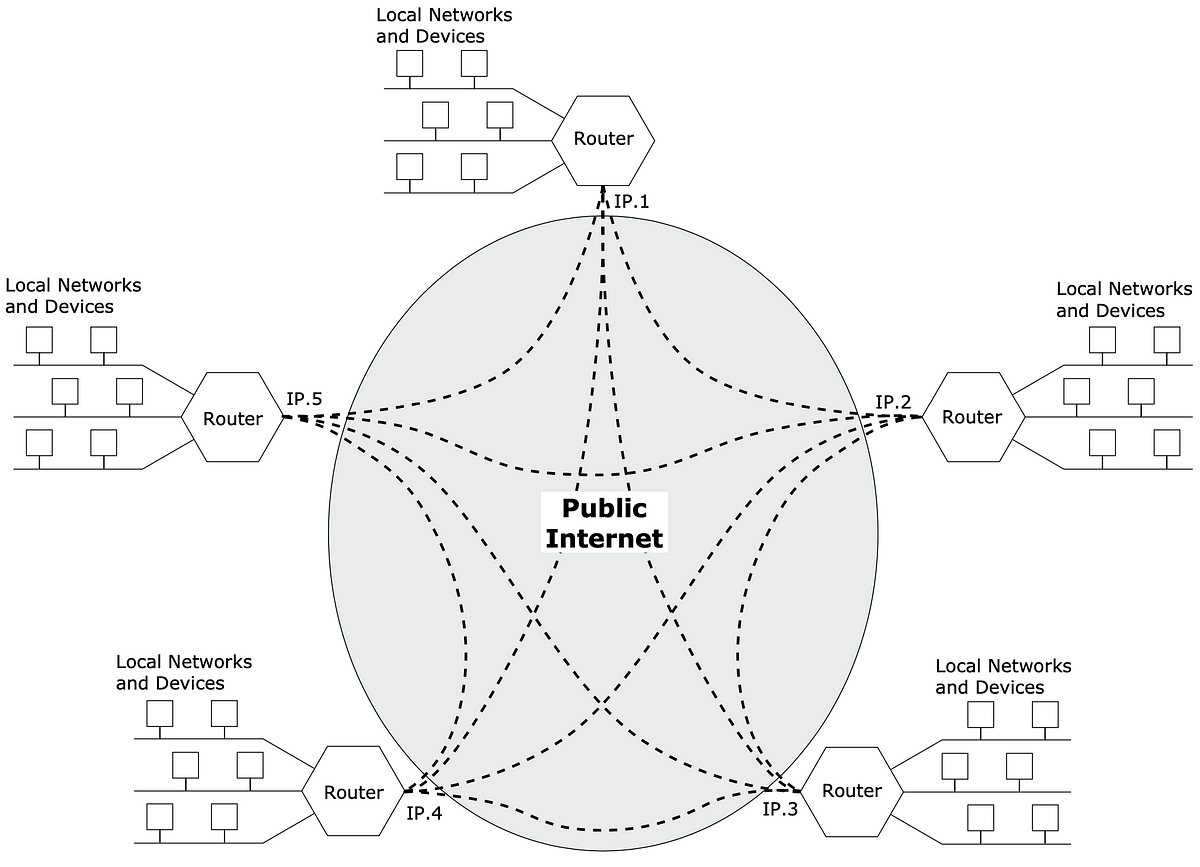Medium
1M
256

Image Credit: Medium
What is a VP²N, and What makes it a better VPN?
- VP²N, a dual-purpose approach to building networks, aims to offer both exclusivity and confidentiality for greater security.
- VPNs first emerged in the 1980s as telco-provided point-to-point circuits without encryption.
- The shift towards private networks via leased telco circuits resulted in cost savings and improved communications for enterprises.
- VPN networks should prioritize elements like authentication, perfect forward secrecy, recovery planning, firewall rules, and audit controls.
- Layered encryption, traffic hiding, Internet access strategy, and network management are crucial for VPN security.
- To enhance security, VP²N eliminates default routes in routers, adding robust exclusivity and a multi-factor authentication approach.
- Full-mesh VP²Ns offer consistency in inter-site communications, making management and maintenance easier while supporting dual-stack configurations.
- Resilience in VP²Ns can be enhanced by utilizing redundant routers, parallel inter-site connections, and alternative pathways like wireless or satellite networks.
- VP²N is beneficial for various sectors like public safety, industrial control, financial networks, and scalable from small to large networks with many devices.
- Implementing confidentiality and exclusivity in a coordinated manner is essential for successful VP²N deployment.
Read Full Article
15 Likes
For uninterrupted reading, download the app